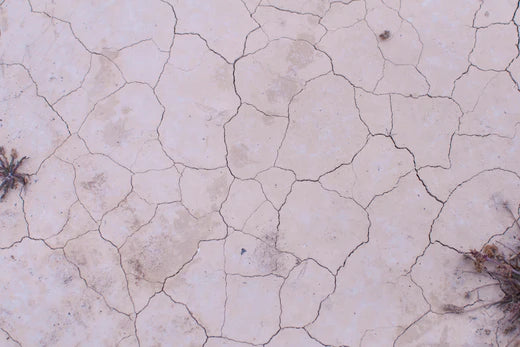What is dermatitis?
Dermatitis is a general term used to describe irritation or inflammation of the skin. It is often used to describe certain types of eczema, such as atopic eczema (atopic dermatitis) or Contact dermatitis - but can also refer more broadly to other general skin irritations that are more temporary. It can affect people of all ages and skin types, but it is most common in those genetically predisposed to skin irritations or those with dry or sensitive skin. Luckily, many forms of dermatitis can be treated and managed by avoiding common irritants or consulting a professional for treatment if symptoms persist.
What are the symptoms of dermatitis?
Dermatitis is used as a broad term to describe skin irritations, but the most common symptoms are:
- Very dry skin
- Irritated or red skin
- Itchiness
Symptoms can vary across the different types of dermatitis, which can also include forms of eczema. Generally, the most common types of dermatitis are:
- Contact dermatitis is skin irritation after contact with a specific material or substance.
- Atopic dermatitis: a common form of eczema, with redness and itching often around the hands, inner elbows, and backs of the knees.
- Seborrheic dermatitis: dry, red, or scaly patches of skin on the scalp.
If you believe you may have a form of dermatitis, we'd recommend speaking to your health professional to get treated.
What are the causes of dermatitis?
Dermatitis is usually caused by contact with a substance that has caused the skin to have an allergic reaction or but allergens that affect the immune system. It can also be caused by substances that damage the skin's surface or dry it out.
The most common irritants for the skin are:
- Harsh soaps and detergents (as an example, many people experience dermatitis on the hands if they commonly wash dishes in hot water and detergent without using gloves)
- Chemicals and cleaning products
- Perfumes or fragranced skincare products
- Dust and powders
- Extreme temperatures or dry air
- Allergens
Skincare for dermatitis
Once you have consulted a health professional for diagnoses and treatment, there are a few self-care practices you can incorporate into your skincare routine to help manage dermatitis.
Skincare for dermatitis could include:
- Topical treatments like creams as prescribed by your doctor
- Avoid irritating ingredients and harsh soaps.
- Avoid drying ingredients in skin care, such as alcohol or foaming agents.
- Don't over-scrub or exfoliate the skin – this will damage the skin's protective layer.
- Moisturise – always keep the skin as hydrated as possible to protect against dryness and maintain the skin barrier.
- Hydrate – regularly use a high-quality, non-irritating face mask to boost skin's hydration levels over time and increase protection against the elements.
Our Collagen Essence Hydrating Face Mask is an ideal solution to help with dermatitis symptoms. It provides gentle, adequate hydration to the skin and helps lock in the moisture barrier – helping to prevent further dryness, and soothe the skin.
Experience The New Era Of Skin
Loved learning about the world of skincare? Find more articles like this one in our learning center here.
Want to start your SumaNurica skincare journey? Shop our Collagen Essence Hydrating Face Mask here, or shop the entire SumaNurica range here.
Question not answered? Or want to speak to one of our friendly skincare experts? Head to our live chat in the bottom right corner and a skin specialist will be there to assist with all your skincare questions and concerns.







